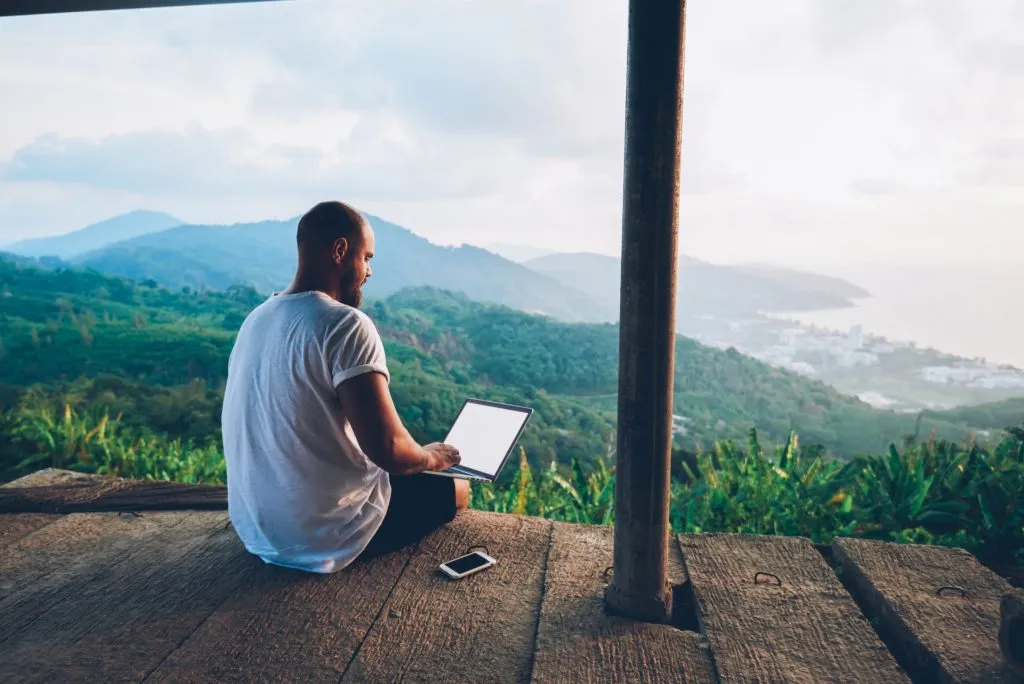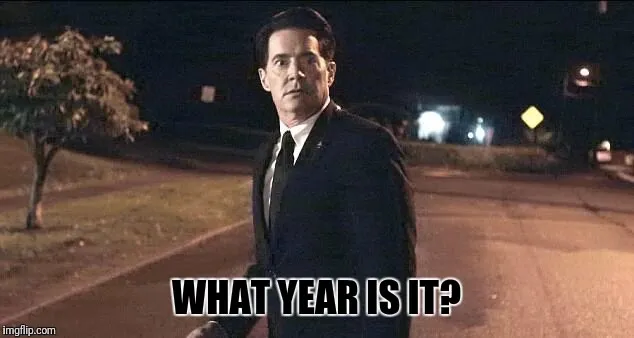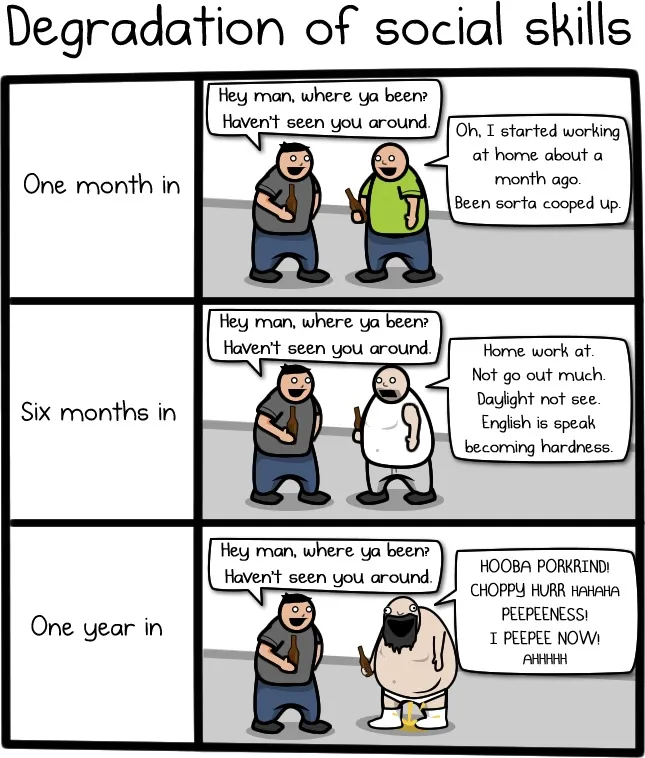
So you’re suddenly working from home.
Maybe that’s something you’ve done infrequently, or maybe it’s something you’ve never been allowed to do before.
Imagine the possibilities.
- Sleep in until 8:55!
- Avoid other human beings for weeks!
- Cook your own lunch!
- Have time for all those things you’ve neglected!

Have you heard the tale of Darth Plagueis the Remote?
I hate to break it to you, but… those things either a) aren’t good for you, or b) don’t happen without work. Intentional, conscious choices that you have to make every day.
You need a routine
When you have an office job, you have a pretty clear routine: Get up at a time that allows you to eat, shower, and get to work on time. Work until you see people going to lunch. Eat lunch. Work until you see people going home. Go home.
When home is your office, that changes. Get up at the time you have to start working. Eat when (or if) you notice you’re hungry. Work until you look at the time and realize you should have stopped already.

Twin Peaks > Jumanji
Unless you have a routine.
Think about it like this: if you’re suddenly working from home, your commute just got drastically shorter. Nothing else has changed.
You still need to get up, eat breakfast, shower, get dressed, and go to work. You still need to set an alarm. (You can just set it a little later.)
You still need to step away from your work at a predictable time to eat lunch. You still need to end work at a predictable time.
These things are important not because people will look at you funny (on the internet, nobody knows you’re still in pyjamas at noon) but because they’re essential to your mental well-being.
Routines are good for humans. They give us a sense of control, and of purpose. They build mental discipline:
An untamed mind is a minefield… Learning to craft routine is the equivalent of learning to let your conscious choices about what your day will be about guide you, letting all the other, temporary crap fall to the wayside. — The Psychology Of Daily Routine, Brianna Wiest
We become accustomed to our routines to such an extent that in the absence of them, we float through the day. Without our usual cues to take breaks or go home, we can forget to step away from work and take time for ourselves.
You need boundaries
My first home office was the space between my bed and the window – that was the only place I had to put a desk. My kids didn’t get that sometimes they could come in and play, and sometimes they couldn’t. Not only that but my brain couldn’t separate my resting space from my work space. Every time I walked past my desk, I felt compelled to check on work and make sure nothing was on fire. Any time I got a notification, I looked.
Did I mention I worked for a globally distributed company with people in just about every timezone? And that I had Slack on my phone, as well as the computer right there in my bedroom?
I got pinged constantly, and I felt as though I couldn’t ignore it. Other people are working, after all, and my desk is right there…
The end result was that if I was awake, I was working. Even on weekends.
It wasn’t sustainable.
Ultimately I had to set boundaries, to communicate those boundaries to everyone at work and at home, and to stick to them. Work email and Slack came off my phone, and work pings were silenced after I logged off.
Boundaries are essential if you want to survive remote working. If you can have a physical separation between the place where you work and the place where you live, that’s great – a separate office works wonders. If not, try setting up a space you can close down or pack away at the end of the day. You can also set up a ritual at the start and end of your day – even something as simple as a song you listen to, or a walk around the block. Your brain will pretty quickly begin to associate those things with “it’s work time!” and “it’s home time!”
Once you’re offline, stay offline. The world won’t end if you don’t answer that ping immediately. It can wait.
You need to look after yourself
Remote work makes it very simple to speak to very few people face to face. If you want, you can easily interact only with the people you live with, and you can spend a surprisingly long time within a 50-meter radius of your home.
You should not do this. (Even if you are an extreme introvert.)

Credit: https://theoatmeal.com/comics/working_home
Much like plants, humans need fresh air and sunlight. In Japan, the concept of shinrin-yoku – literally, “forest bathing” – has been around for decades. It originated to combat death from overwork. (At this point, it should probably go without saying that working until you literally die is a bad thing.)
Trees are great, but it turns out there’s an actual physiological benefit to this practice:
… being in nature made subjects, physiologically, less amped. The parasympathetic nerve system controls the body’s rest-and-digest system while the sympathetic nerve system governs fight-or-flight responses. Subjects were more rested and less inclined to stress after a forest bath. — The Japanese practice of ‘forest bathing’ is scientifically proven to improve your health
Humans also need other humans. We need to share our experiences and feelings so that we can process them fully. Friends and family are especially important if your job is stressful – feelings of isolation will only deepen that stress and can even turn it into depression. (Granted, at the moment spending time with people might have to be via video chat, but it still counts.) Scheduling a regular time to connect with friends is one way to make sure you’re fulfilling your need for human contact – routine is good, remember? In fact, routines and boundaries are really just ways of ensuring you are looking after yourself.
Conclusion
Working from home is amazing, but the best thing about it can also be the worst thing: you are in control of your time. It’s all too easy to fall into bad habits, which in turn might burn you out, but will almost certainly lead you to conclude that working from home sucks. But it doesn’t have to suck – you just need to make time to understand what works best for you.
You wouldn’t put up with someone else imposing unhealthy working conditions on you, so don’t do it to yourself. Make sure you are setting up an environment in which you can be happy, productive, and healthy.
Thanks for reading!
By the way, I’m looking for a new role in tech recruiting at the moment - I can also help you set up solid remote-first work practices. Check out my résumé!